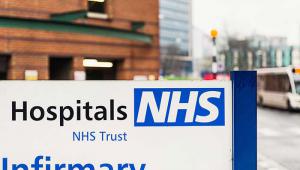In a report examining the NHS finances, the Public Accounts Committee said its financial performance was not sustainable, and urged the Department of Health, NHS England and No.10 to work together “in the best interests of patients”.
NHS providers have amassed a deficit of almost £900m in the first nine months of the financial year and PAC chair Meg Hillier claimed the NHS “is under threat from growing and unsustainable financial pressures”. Few trusts have a credible plan for meeting the financial targets set in the financial reset in 2016, she stated.
Amid these pressures, the government seemed unable to get its own house in order, with senior figures falling out in public over a longer-term strategy, the committee concluded. This came after NHS England chief executive Simon Stevens told the committee’s inquiry that prime minister Theresa May was “stretching it” by claiming that the NHS was getting more than the minimum £8bn by 2020 it asked for in the Five Year Forward View.
Such bickering did little to inspire confidence, the MPs added, and Hillier said “contradictory statements about funding from the prime minister and head of NHS England are an insult to taxpayers”.
She added: “Government’s rigid adherence to a set of stock lines about funding, in the face of mounting evidence its plan isn’t up to the job, is not it.
“It is inconceivable the government would allow a catastrophic failure in the NHS and we expect it to take targeted action now to support NHS bodies facing severe financial problems.”
Today’s Financial sustainability of the NHS report also criticised the government for using the sustainability and transformation plan process to ask local bodies “to solve multiple problems and deliver a range of priorities” without a proper understanding of what can be achieved.
Transformation under such pressure is hard to achieve, the MPs concluded, and Whitehall must do more before the public can feel confident that the STPs are about delivering efficiencies “not just a cover for cuts in services”.
Among its recommendations, the committee called on the government to set out a “clear and transparent recovery plan” targeting NHS bodies and health economies in severe financial difficulty. By July, ministers should also report back on what it has done to better understand the link between financial performance and the impact on patient care.
Responding to the report, King’s Fund chief executive Chris Ham said the committee was right to call on the government and NHS bodies to work more closely together. The STPs are the best hope for delivering essential changes to NHS services, he added, but require much greater alignment across the sector.
“There is no doubt that many of the plans need significant work, but where a convincing case for change has been made, ministers and local politicians should back NHS leaders in implementing essential and often long-overdue changes to services.”
A DoH spokesman said: “We are united behind the ambition to make the NHS the safest, highest-quality healthcare system in the world — which also means ensuring financial sustainability for the future, and the hospital sector's financial position has now improved by £1.3bn compared to this time last year, with 44 fewer trusts in deficit.”




















